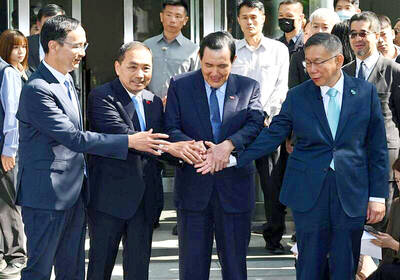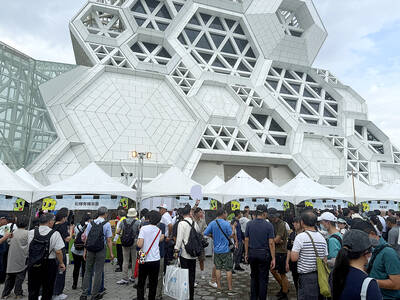WIRELESS SYSTEM SENDS BACH OR BOWIE INTO YOUR LIGHT BULBS
Klipsch, the speaker manufacturer, has come up with a twist on multiroom audio: wirelessly sending music to light bulbs around
the house.
Its LightSpeaker System transmits music from a PC or iPod to a
screw-in unit that combines a 20-watt speaker with a 10-watt LED lamp.
A music source is plugged into the included transmitter, and a remote is used to both dim the lights and control the sending of the stereo signal to pairs of speakers. The transmitter can control up to four pairs of speakers, and send two different streams of music to them.
At US$600 for the starter kit, plus US$250 for each additional speaker, the system doesn’t come cheap. Klipsch argues that with the lamp’s expected 15-year life, simple installation and no need for in-wall wiring or amplifiers, the product will pay for itself in five years.
It’s doubtful that many consumers think like that; most focus on the up-front cost. Otherwise, US$80 LED replacement lamps would be selling like hotcakes.
EARBUDS THAT DANCE OR NOT, AND HAVE ARTIFICIAL INTELLIGENCE
Technocel, an electronic accessories company, introduced what it calls the Ear Vibe, “the first stereo headset that vibrates to the beat of your music” at the Consumer Electronics Show earlier this month. The US$30 earbud-style headphones begin to move a bit when they encounter low-frequency notes. It’s kind of a makeshift bass enhancement.
Perhaps it’s somewhat coincidental that at the same trade show, Sennheiser, which makes audio accessories, displayed a new line of headphones that it had developed with Adidas. One of its selling points, Sennheiser says, is that the products “are insensitive to vibration.” Go figure.
For a more upscale version, serious listeners might consider Sony’s latest effort in noise-canceling technology: the Sony MDR-NC300D Digital Noise Canceling Earbuds, priced at a budget-canceling US$300.
The tweak with Sony’s headphones is artificial intelligence, which automatically selects the optimal noise cancellation mode based on the outside environment, like a plane, a train or an office. The headphones, which will run for about 20 hours on an AA battery, come with a variety of fittings to accommodate up to seven different sizes of ears. They will be available in next month.
BOLDLY GOING WHERE BOSE HAS GONE BEFORE
Bowers & Wilkins — formerly called B&W, but that clashed with BMW — is the highly regarded British sonic innovator and maker of loudspeakers. Think of the company as the British Bose.
Some years ago, Bose began to chase another segment of the consumer market beyond loudspeakers, by introducing headphones and computer desktop speakers. At the Consumer Electronics Show in Las Vegas, Bowers & Wilkins introduced headphones and computer desktop speakers.
The Mobile headphones are Bower’s first for the consumer market, but the move is not surprising because the company has been after the iPod/iPhone customer for a couple of years with its Zeppelin and Mini Zeppelin iPod speaker docks. The Mobiles are designed as noise-isolating, not noise-canceling, and have sealed cups that wrap around the ears.
They should be available later this month, said a Bowers & Wilkins representative, who added that the ear pads were made of the “softest sheep leather from New Zealand.”
STANDING GUARD OVER A LOST PHONE
Thoughts of cellphone security often dwell on the danger that hackers pose, but the far more likely threat comes from a phone that is simply lost or stolen. That leaves your personal information, photos and whatever else (you didn’t store passwords on your phone, did you?) open to snooping.
WaveSecure, a free app for Android (also available for a variety of other phones, including Nokia), lets you use any computer to lock down your lost phone, locate it, erase the memory and, if the phone is recovered, restore much of the contents.
WaveSecure offers more features on some other phones, like allowing users to set automatic backups, which are not part of the Android app. The company said it was working to add that and other functions for Android, including backing up music, applications and settings.
In the meantime, the Android Market keeps a list of apps you’ve paid for, so you should not have to buy them again for your replacement phone. Music can be backed up to your computer. As for settings, make notes. You’re on your own.

It’s Aug. 8, Father’s Day in Taiwan. I asked a Chinese chatbot a simple question: “How is Father’s Day celebrated in Taiwan and China?” The answer was as ideological as it was unexpected. The AI said Taiwan is “a region” (地區) and “a province of China” (中國的省份). It then adopted the collective pronoun “we” to praise the holiday in the voice of the “Chinese government,” saying Father’s Day aligns with “core socialist values” of the “Chinese nation.” The chatbot was DeepSeek, the fastest growing app ever to reach 100 million users (in seven days!) and one of the world’s most advanced and

Has the Taiwan People’s Party (TPP) changed under the leadership of Huang Kuo-chang (黃國昌)? In tone and messaging, it obviously has, but this is largely driven by events over the past year. How much is surface noise, and how much is substance? How differently party founder Ko Wen-je (柯文哲) would have handled these events is impossible to determine because the biggest event was Ko’s own arrest on multiple corruption charges and being jailed incommunicado. To understand the similarities and differences that may be evolving in the Huang era, we must first understand Ko’s TPP. ELECTORAL STRATEGY The party’s strategy under Ko was

The latest edition of the Japan-Taiwan Fruit Festival took place in Kaohsiung on July 26 and 27. During the weekend, the dockside in front of the iconic Music Center was full of food stalls, and a stage welcomed performers. After the French-themed festival earlier in the summer, this is another example of Kaohsiung’s efforts to make the city more international. The event was originally initiated by the Japan-Taiwan Exchange Association in 2022. The goal was “to commemorate [the association’s] 50th anniversary and further strengthen the longstanding friendship between Japan and Taiwan,” says Kaohsiung Director-General of International Affairs Chang Yen-ching (張硯卿). “The first two editions

It was Christmas Eve 2024 and 19-year-old Chloe Cheung was lying in bed at home in Leeds when she found out the Chinese authorities had put a bounty on her head. As she scrolled through Instagram looking at festive songs, a stream of messages from old school friends started coming into her phone. Look at the news, they told her. Media outlets across east Asia were reporting that Cheung, who had just finished her A-levels, had been declared a threat to national security by officials in Hong Kong. There was an offer of HK$1m (NT$3.81 million) to anyone who could assist